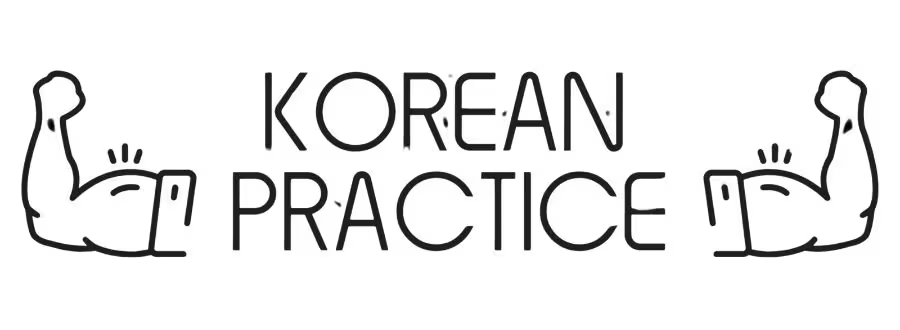Introduction Learning a new language can be a challenging but rewarding experience, especially when it comes to Korean.
While traditional language learning methods like grammar drills and vocabulary memorization are essential, incorporating South Korean culture into your learning routine can add a whole new dimension to your language skills.
In this article, we’ll explore 3 ways to improve your Korean skills through South Korean culture. From participating in traditional events to consuming Korean entertainment, you’ll learn how cultural immersion can enhance your language skills and deepen your understanding of the Korean people and their way of life.
1. Immersing Yourself in Korean Traditions
Immersing Yourself in Korean Traditions South Korean culture is rich in history and tradition, and participating in traditional events and festivals can be a fun and meaningful way to learn about the country and its people. Here are some practical tips to get started:
- Participate in traditional events and festivals: From the Lunar New Year (Seollal) to the Chuseok harvest festival, there are many opportunities throughout the year to experience South Korean culture first-hand.
- Try traditional Korean food: Korean cuisine is a delicious and unique aspect of the culture, with dishes like kimchi, bibimbap, and bulgogi. Eating these dishes can give you a deeper understanding of Korean food culture and help you learn new vocabulary.
- Learn about Korean history and culture through museums and cultural centers: Visit museums, cultural centers, and historical sites to learn about Korean history and culture. You can also attend events, workshops, and lectures for more in-depth learning opportunities.

Q1. What is Seollal?
A1. Seollal is the Korean Lunar New Year, which is celebrated on the first day of the lunar calendar. It is a time for families to gather together and perform traditional customs and rituals, such as ancestral worship and the exchange of gifts. Some popular activities during Seollal include playing traditional games, such as yut nori, and eating special foods like tteokguk (rice cake soup).
Q2. What is Chuseok?
A2. Chuseok is a traditional Korean harvest festival that takes place on the 15th day of the 8th lunar month. It is a time for families to come together and give thanks for the year’s harvest, and is considered one of the most important holidays in Korea. During Chuseok, people visit their hometowns to spend time with their families and participate in traditional activities such as playing folk games and making and eating special foods such as songpyeon (rice cakes).
2. Consuming Korean Entertainment
Consuming Korean Entertainment Entertainment is an important part of any culture, and consuming Korean entertainment can be a fun and effective way to improve your Korean skills. Here are some practical tips to get started:
- Watch Korean dramas and movies: Korean dramas and movies are a great way to practice listening and comprehension skills while enjoying a good story. They can also give you insight into South Korean culture and societal norms.
- Listen to Korean music: Korean pop (K-pop) is a global phenomenon, and listening to Korean music can help you learn new vocabulary, practice pronunciation, and gain a deeper understanding of South Korean culture.
- Read Korean comics (manhwa) and books: Korean comics and books are a fun and engaging way to improve your reading skills and learn about South Korean culture. They also provide a unique perspective on Korean society and values.
Q. What are some popular Korean dramas to watch?
A. Korean dramas, also known as K-dramas, have become increasingly popular worldwide. Here are three of the most highly recommended K-dramas:
- “Crash Landing on You“: A romantic comedy-drama about a South Korean heiress who accidentally lands in North Korea and falls in love with a North Korean army officer.
- “Itaewon Class“: A drama about a young man who opens a bar in Itaewon after losing his father and fights against a large corporation.
- “The King: Eternal Monarch“: A fantasy drama about a modern-day king who tries to close the door between the two parallel universes to prevent a disaster.

Image by Freepik
3. Interacting with the Korean Community
Interacting with the Korean Community Interacting with native speakers and the Korean community can help you build confidence and improve your speaking and conversational skills. Here are some practical tips to get started:
- Join a Korean language exchange group: Find a language exchange group in your local area or online, where you can practice speaking with native speakers and learn from each other.
- Make Korean friends: Making friends with Koreans can give you the opportunity to practice your language skills in a natural and informal setting, and learn more about the culture from those who live it.
- Practice conversation skills with native speakers: Seek out opportunities to practice speaking with native speakers, such as attending Korean language classes, participating in cultural events, or having conversations with new friends.
Q. What are some common cultural customs in the Korean community?
A.
- Family values: Family is highly valued in South Korean culture and respect for elders is an important aspect of this.
- Respect for hierarchy: There is a strong sense of hierarchy in Korean society and people tend to defer to those in positions of authority.
- Food culture: Food plays an important role in South Korean culture and sharing meals is seen as a way of building relationships.
Conclusion
Incorporating South Korean culture into your language learning routine can bring new life to your learning experience, and help you gain a deeper understanding of the Korean people and their way of life. From participating in traditional events to consuming Korean entertainment, there are many ways to improve your Korean skills through cultural immersion.
We hope this article has given you practical tips and resources to start incorporating South Korean culture into your language learning journey. Remember, the key to success is consistency and dedication, so don’t be afraid to take the first step and start immersing yourself.







